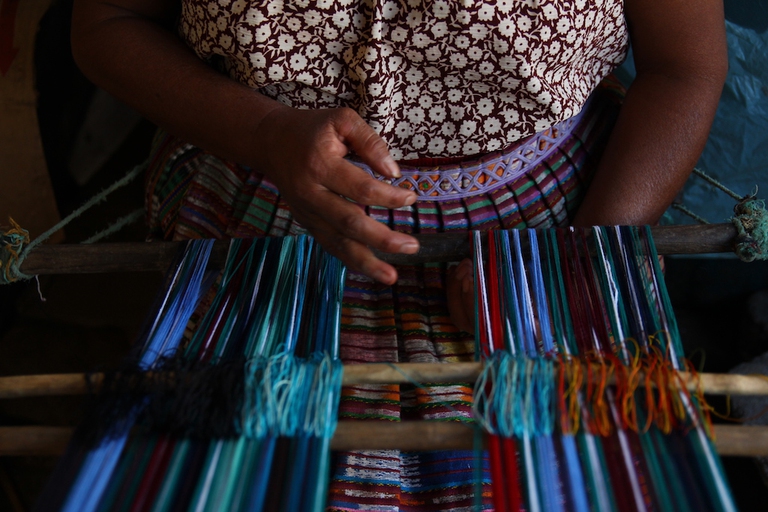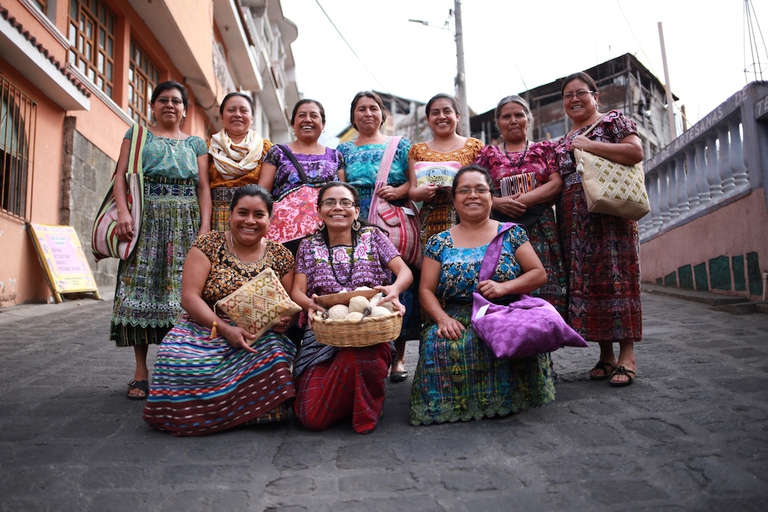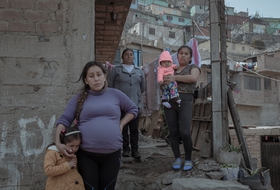
A special report from the Yuqui territory delves deep into the dreams, challenges, joys and sadness of one of Bolivia’s most vulnerable indigenous groups.
The challenges that indigenous Maya women currently face in Guatemala are complex and numerous but if we had to sum them up in one word, it would be exclusion. This according to Rosalia, a 33-year old associate artisan at Teixchel, a sustainable weaving association in San Pedro La Laguna, on the shore of Lake Atitlán, that uses exclusively nontoxic eco and
The challenges that indigenous Maya women currently face in Guatemala are complex and numerous but if we had to sum them up in one word, it would be exclusion. This according to Rosalia, a 33-year old associate artisan at Teixchel, a sustainable weaving association in San Pedro La Laguna, on the shore of Lake Atitlán, that uses exclusively nontoxic eco and natural dyes. “The exclusion is economic. It is social, and it happens in all spaces. Indigenous women are never fully taken into account. Discrimination is real, as well as machismo”. The fact that quite a lot of indigenous women don’t speak Spanish, the country’s official language, is further isolating and wearing their traditional dress, the “traje”, also exposes them to discrimination.
Read more: Guatemala, Maya women fight to defend indigenous textiles from the fashion industry
“Our biggest wish is to be accepted because we’re always looked down upon, and that is something we greatly suffer from,” Rosalia comments. “For example, if you go to hospital and you’re an indigenous woman, they might not even look at you or they might ask you to wait. A Ladina woman (one whose mother tongue is Spanish and who possesses Hispanic cultural traits) comes in at the same time and they take her straight in”. So exclusion takes on many forms and can be seen in various areas. “In the political space you can see it too. How many indigenous women sit in Congress? None. That says it all!” she adds.
Read more: Justice in Guatemala. Soldiers found guilty of sexual violence against indigenous women
Weaving cooperatives such as Teixchel are helping Mayan women address these issues by giving them the space to express their identity and most importantly speak their mind. “Here we can debate and share stories while we work with our art. In most spaces we’re not allowed to give our opinion but here we’re encouraged to express ourselves. It’s a form of recognition,” Rosalia points out.
Why is weaving such a popular practice among indigenous women? It is an art form that has been transmitted inter-generationally over the course of centuries, but it’s even more: “Through the various patterns and colours indigenous women can share their stories. Women identify with the weaving practice. This is their art. With it, they can show their creativity,” shares Rosalia. Historically, this practice has always been important. The only difference is that today there are even more women who practice it.
On top of being a great tool for self-expression, it is also a valuable source of income. “This is where we get our money from. In Guatemala very often indigenous women are the bread winners of the family. Many weavers are also widows or single mothers,” she adds. There are also beneficial impacts at the community level: cooperation between women is common in the field as they often provide each other with opportunities for work. “Sometimes three or four women work together on the same piece, a bag for example. Each one of them doing a different part,” says the artisan weaver.
Read more: Down to Xjabelle, the fashion collection by a young designer with Down syndrome
However, sometimes the process isn’t valued when it comes to retail. “A lot of time is spent on each piece. This is art, but it isn’t always valued for what it is. People try to negotiate the price down without recognising all the time and effort put in the work,” Rosalia confides. “Sometimes women give up because of that as it isn’t always financially sustainable”.
“Our biggest dream is to revive the art of our ancestors, return to the weaving art form to tell stories. We need to teach it to young girls so that its meaning isn’t lost. This is our cultural heritage, we need to be proud of and preserve it,” Rosalia says. Because when it comes to Teixchel, women and indigenous empowerment are at the core of the brand’s vision and mission.
Siamo anche su WhatsApp. Segui il canale ufficiale LifeGate per restare aggiornata, aggiornato sulle ultime notizie e sulle nostre attività.
![]()
Quest'opera è distribuita con Licenza Creative Commons Attribuzione - Non commerciale - Non opere derivate 4.0 Internazionale.
A special report from the Yuqui territory delves deep into the dreams, challenges, joys and sadness of one of Bolivia’s most vulnerable indigenous groups.
One in three women have suffered physical or sexual violence. With contributions from Europe, Africa, Asia and Latin America, we look at how this shadow pandemic affects every corner of the world.
The Istanbul Convention against gender-based and domestic violence marks its tenth anniversary. We look at what it is, who its signatories are, and what the future might hold.
European Commission President Ursula von der Leyen reminded us of the gravity of violence against women around the world, and of the Istanbul Convention’s utmost importance.
The Yuqui people of the Bolivian Amazon fight not only to survive in the face of settlers, logging and Covid-19, but to preserve their culture and identity.
President Erdoğan has pulled Turkey out of the Istanbul Convention, key in the fight against gender violence, claiming that it favours the LGBT community rather than family values.
Jair Bolsonaro is accused of crimes against humanity for persecuting indigenous Brazilians and destroying the Amazon. We speak to William Bourdon and Charly Salkazanov, the lawyers bringing the case before the ICC.
Activists hail the decision not to hold the 2023 World Anthropology Congress at a controversial Indian school for tribal children as originally planned.
Violence against women in Peru has increased as a result of Covid-19 lockdowns. 14,912 people were reported missing from January to November 2020, more than half of them minors and 64 per cent women. People have been confined to their homes for months, many forced to endure poor physical, economic and social conditions. A situation that









